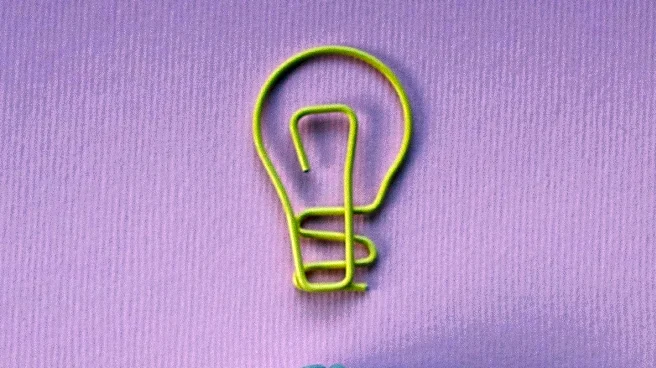What's Happening?
A neuroscientist from Boston University, who specializes in memory manipulation, has shared insights into how his research has aided his personal recovery from alcohol addiction. The scientist, who studies
how brain cell networks encode and rewrite memories, found himself battling addiction after the death of a close friend and lab partner. His journey to sobriety involved leveraging the brain's plasticity to rewire his neural pathways, shifting from addiction to healthier connections. This process was facilitated by positive social interactions, which release chemicals like oxytocin and dopamine, reinforcing new neural links. The scientist's experience underscores the concept that addiction is deeply tied to memory, and recovery can be achieved by forming new, positive associations.
Why It's Important?
This development is significant as it highlights the potential of neuroscience in addressing addiction, a major public health issue in the U.S. By demonstrating that the brain's plasticity can be harnessed to overcome addiction, this research offers hope for new therapeutic approaches. The findings suggest that fostering social connections and positive interactions can be crucial in recovery, providing a non-pharmacological strategy to combat addiction. This could influence public health policies and treatment programs, emphasizing the importance of community and support networks in addiction recovery. The broader implications extend to mental health treatment, where similar strategies could be applied to other conditions involving memory and emotional regulation.
What's Next?
The neuroscientist's work may inspire further research into memory manipulation as a tool for addiction recovery and mental health treatment. Future studies could explore how these findings can be translated into practical therapies for individuals struggling with addiction. Additionally, there may be increased interest in developing community-based recovery programs that emphasize social connection and support. Policymakers and healthcare providers might consider integrating these insights into existing treatment frameworks, potentially leading to more effective and holistic approaches to addiction recovery.
Beyond the Headlines
The ethical implications of memory manipulation in treating addiction and other mental health issues warrant careful consideration. While the potential benefits are significant, there are concerns about the extent to which memories should be altered and the long-term effects of such interventions. This raises questions about consent, autonomy, and the nature of personal identity. As research progresses, it will be crucial to balance the promise of these techniques with ethical guidelines to ensure they are used responsibly and with respect for individual rights.









